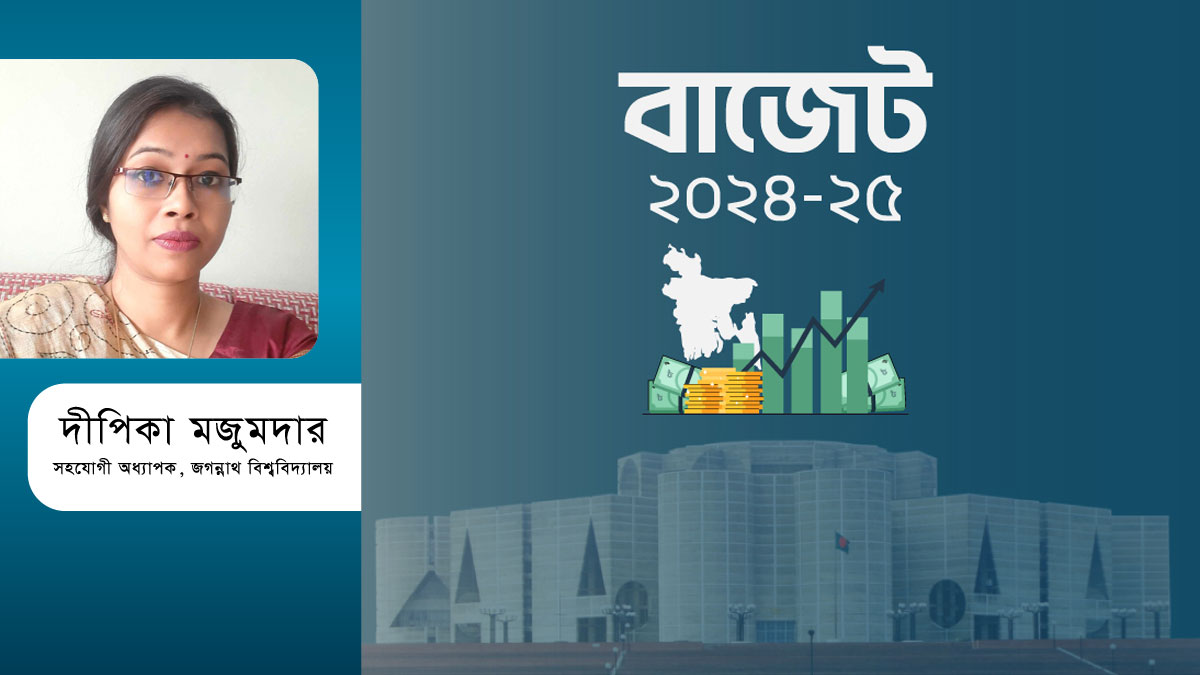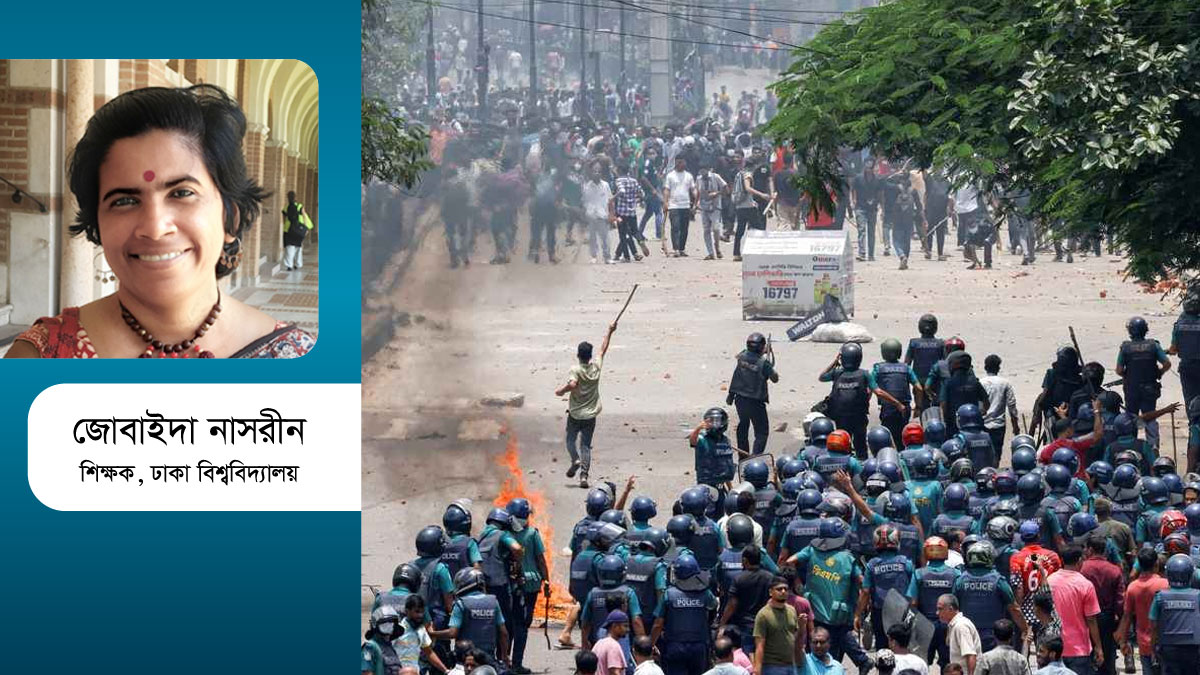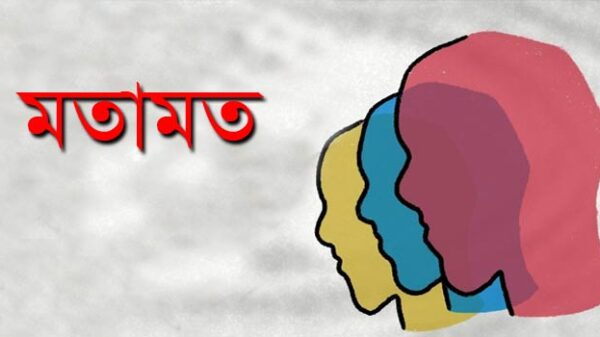Budget 2024-2025: Will inflation decrease?


Published: 02:38 20 May 2024
To the common people, especially the lower and lower-middle class of the society, the budget means the calculation of the increase and decrease in the prices of goods. So every year when the budget comes, everyone's eyes are on to know where the expenditure has increased or decreased. The upcoming fiscal year 2024-2025 budget is no exception.
When the current inflation and market price situation has put unbearably heavy pressure on the consumers, the common man's only expectation is that the budget should reduce inflation.
The economy of Bangladesh is currently facing various challenges such as high inflationary pressure, low investment, increased debt service obligations, slow growth, dwindling foreign exchange reserves, unemployment and inequality. External (global economic instability, Iran-Israel war and various geopolitical crises) and internal (macroeconomic structural problems) factors combine to create these challenges.
Amid such adverse economic conditions, the Finance Minister of the new government will present the budget for the fiscal year 2024-25 in the National Parliament in June.
National budget is considered as the economic document of the country. The National Budget is formulated every year in June and the Finance Minister of the country presents the Finance Bill in the National Parliament. Which is effective from July 1 to June 30 of the next financial year.
A budget is an estimate of the government's expected income and expenditure in a financial year. Which basically has two parts. Revenue Budget and Development Budget. The government spends the revenue budget to run its state. And some part of the development budget is collected by the government from its own income and the remaining part is filled by the government with loans.
A fundamental difference between the individual budget and the state budget is that the individual first decides how much the income will be, and determines the expenditure sector. On the other hand, the state first determines the sectors of expenditure.
A budget is an estimate of the government's expected income and expenditure in a financial year. Which basically has two parts. Revenue Budget and Development Budget...
One of the problems with the budget in Bangladesh is that the rate of tax collection is very low compared to the country's GDP. Due to low revenue collection, expenditure is not being increased in the areas in which there is a special need to increase allocation in the budget such as education, health, social security etc.
There is no solution to the problems in the banking sector without a democratic transition
Economists recommend deficit budgeting in poor countries like Bangladesh. As if the economy is stimulated by the pressure to meet the deficit. But in the current economy stagnation in revenue collection; Limited ability to borrow in foreign currency; Economists believe that the national budget formulation for the next financial year should be contractionary in response to the government's increase in interest expenditure on local debt and limited opportunities for foreign investment.
The International Monetary Fund (IMF) has advised Bangladesh in its budget for the next financial year 2024-25 to increase revenue by reducing tax exemptions, adjusting fuel prices, rationalizing subsidies and reducing defaulted loans.
If VAT or indirect tax is increased to increase the revenue, then its impact on the common man. Therefore, experts feel that new areas of tax collection should be found without increasing the tax rate in the upcoming budget. Apart from this, he suggested increasing the revenue by collecting more tax and VAT from the rich class of the society, preventing money laundering, recovering the money and recovering the loans from the defaulters.
IMF has suggested adjustment of fuel prices. Adjustment refers to raising or lowering prices. But in reality, Bangladesh has always had a history of increasing commodity prices and the occurrence of price reductions is rare.
Inflation is increasing in Bangladesh, economic growth is decreasing as a result of which people's income opportunities and purchasing power are decreasing. Food inflation stood at 10.22 percent in April. Rice, pulses, eggs, chicken, fish, meat, raw market, fruits, baby food are all products that are difficult for common people to buy.
IMF has suggested adjustment of fuel prices. Adjustment refers to raising or lowering prices. But in reality, Bangladesh has always had a history of increasing commodity prices and the occurrence of price reductions is rare.
Considering the current inflationary situation of the country, the experts are advising the government to prepare the next budget by emphasizing on the issue of sustainable food security and nutritional situation by keeping the price of daily necessities under control. They said that the domestic demand of the country should be considered on a priority basis in food subsidy.
Along with this rise in food inflation, there has been a recent devaluation of the rupee against the dollar. A rise in the value of the dollar will have a negative impact on imports, increasing the price of goods. As a result, inflation will increase further.
Some economists have called for sensitivity in imports of essential commodities like medicines and medical supplies, renewable energy-related imports, agricultural inputs and projects involving huge employment and foreign exchange earnings to spare the common man from the pressure of higher prices.
As the fiscal policy and political vision of the government is implemented through the budget. So people have old expectations around the new budget.
It will play an important role in addressing short to medium term issues such as protecting poor, low and lower-middle income families, controlling commodity prices, achieving higher economic growth and reducing inequality. However, every time the budget plays a limited role in solving these problems.
It will play an important role in addressing short to medium term issues such as protecting poor, low and lower-middle income families, controlling commodity prices, achieving higher economic growth and reducing inequality. However, every time the budget plays a limited role in solving these problems.
According to Transparency International Bangladesh (TIB), rampant corruption and money laundering are the root causes of the ongoing economic crisis, rising income inequality and dwindling foreign exchange reserves. A review of the previous budgets shows that a large part of the budget has been allocated to ensure social security, but due to wastage of money, irregularities and various levels of corruption, the benefits do not reach the beneficiaries properly.
It is alleged that most of the subsidies given by the government are squandered by raghabboal traders, industrialists. Common people will not get the benefits of the budget if corruption is not stopped. Therefore, every person of the country expects that the upcoming budget will have the right direction to eliminate corruption and control the huge vicious cycle of money laundering.
Deepika Majumdar. Associate Professor, Department of Economics, Jagannath University
Advertisement
Most Readed - Opinion
- The new director of IQAC. Nazimuddin
- Why is there no moral right to be President? Sahabuddin's
- Mushfiq became the first Bangladeshi to reach the milestone
- Two college students killed in Madaripur road accident
- BCB got crores of sponsors
- Container transport stopped due to labor strike at Chittagong port
- The head of Hezbollah's financial department was killed in an Israeli strike
- Awareness meeting on HPV vaccination to prevent cervical cancer in Kurigram
- Human chain and rally in Phulbari demanding withdrawal of false cases against journalists in Kurigram
- The President urged not to create controversy on the settled issues
- More News is hiring for various positions
- A farmer was hacked and injured due to a land dispute in Madaripur
- Expectations of Islamic University students from the new VC
- Who is getting Messi's 10 and Di Maria's jersey number 11 in the Argentina team?
- Shah Rukh went to sleep at 5 in the morning, what time did he get up?
- How to understand that the image is created with AI
- Salman F. Rahman's enjoyment of sharing the presentation!
- Long live the dreamer Sheikh Kamal in the heart of youth
- The VAR expert explained the controversial penalty
- Will India return Sheikh Hasina in the murder case? What is in the Dhaka-Delhi agreement?



